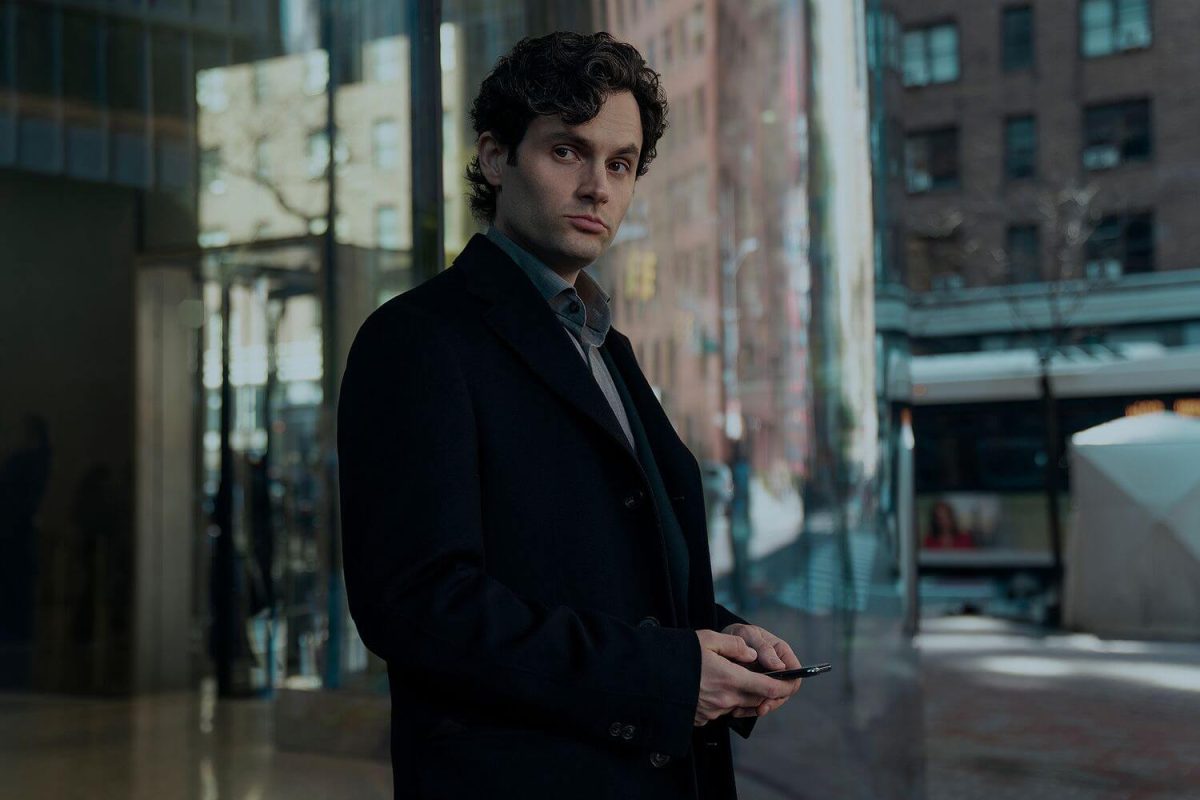world news
Penn Badgley’s Superhuman Skill: How ‘You’ Star’s No-Blink Acting Redefined Psychological Thrillers
Introduction: The Power of a Stare — Penn Badgley’s Unique Acting Secret
When it comes to creating a compelling villain or anti-hero, it’s often the subtle things that make the biggest difference — a slight smirk, a calm voice, or, in Penn Badgley‘s case, an intense, unrelenting stare. In Netflix’s smash hit You, Badgley plays Joe Goldberg, a charming yet chilling figure whose obsessive love and moral justifications send shivers down viewers’ spines.
Recently, it was revealed that part of what makes Joe so disturbingly effective is Badgley’s almost superhuman ability not to blink during key scenes. This simple but powerful acting choice elevates Joe from a typical TV anti-hero to something far more unsettling: a man who seems always calculating, always watching, and never, ever letting his guard down.
In this article, we’ll explore how Penn Badgley’s unique no-blinking technique came to be, its impact on the show, why it resonates with audiences, how it compares to other iconic performances, and what it teaches about the craft of acting. Let’s dive into the fascinating world behind the stare that changed everything.

How the No-Blinking Technique Began: A Happy Accident Turned Acting Masterstroke
According to Penn Badgley himself, the now-iconic no-blinking habit was never planned. It wasn’t a directorial choice or a script note. Instead, it evolved naturally during the filming of You. Badgley realized that when portraying Joe’s intense inner life — his obsessive thoughts, his internal rationalizations — maintaining an unbroken stare amplified the character’s unsettling nature.
The absence of blinking, a normal human reflex, subtly signals to viewers that something isn’t quite right. Joe’s stillness contrasts sharply with the bustling, emotional world around him, making him seem disconnected, alien, almost robotic. It’s a brilliant way to show rather than tell — communicating volumes without a single line of dialogue.
As the series progressed, Badgley leaned more heavily into this technique, especially during Joe’s more disturbing moments. Whether stalking a new love interest or rationalizing horrific actions, Joe’s unwavering stare became a visual trademark, unsettling audiences and drawing them deeper into his fractured mind.
What began as an instinctive acting choice has since become one of You‘s defining features, demonstrating how powerful an actor’s physicality can be when creating an unforgettable character.
Psychological Impact: Why the No-Blinking Stare Gets Under Our Skin
Blinking is a deeply human behavior — we all do it every few seconds without thinking. It signals vulnerability, humanity, and normal social engagement. When someone doesn’t blink, it triggers an instinctive feeling that something is wrong. It feels unnatural, even threatening.
Penn Badgley’s unblinking stare taps into this primal discomfort. His portrayal of Joe Goldberg forces viewers into an intimate psychological experience. Instead of offering moments of relief through natural blinking, Joe’s gaze remains constant, oppressive, and judgmental. It traps viewers in his world, making them complicit in his twisted logic.
This method is incredibly effective for a show like You, which invites audiences to both empathize with and recoil from its central character. The lack of blinking creates a claustrophobic, hyper-focused perspective, mirroring Joe’s obsessive mind. Each long, intense stare reminds the audience: this is not normal. This man is dangerous.
Studies in psychology also show that unbroken eye contact can increase discomfort, emotional intensity, and feelings of vulnerability — all key ingredients in building a psychological thriller that sticks with viewers long after the credits roll.

A Legacy of Stillness: Comparing Badgley to Other Iconic Roles
Penn Badgley’s no-blinking technique places him in a lineage of actors who have used similar physical quirks to create memorable, unsettling performances. Think Anthony Hopkins’ terrifying stillness as Hannibal Lecter in The Silence of the Lambs, or Christian Bale’s icy detachment in American Psycho. Both performances share the same eerie calm, a stillness that hints at something monstrous beneath the surface.
Hopkins famously kept his blinking to a minimum during Lecter’s scenes, making the character seem both hyper-intelligent and predatory. Bale’s portrayal of Patrick Bateman similarly used calculated physical control — including prolonged, unblinking stares — to signal the character’s internal disconnect from humanity.
In both cases, the actors understood that horror isn’t always about loud noises or gore; it’s about the subtle, uncanny feeling that something is deeply off. Penn Badgley’s Joe Goldberg joins this pantheon of meticulously crafted villains — men who seem perfectly normal on the outside but reveal their darkness through the tiniest cracks in behavior.
It’s a testament to Badgley’s skill that he can hold his own among such illustrious company, using a minimalist technique to maximum, spine-tingling effect.
Behind the Scenes: The Physical and Mental Toll of Staying So Still
While viewers marvel at Badgley’s no-blinking prowess, few realize the physical and mental challenges it presents. Blinking is an automatic reflex tied to eye health, moisture regulation, and even cognitive function. Forcing oneself to suppress this reflex takes immense concentration — and, over long periods, can cause discomfort, dryness, and even strain.
In interviews, Badgley has acknowledged that maintaining such intense stillness isn’t easy. Filming can involve long hours under bright lights and multiple takes of emotionally charged scenes. Suppressing natural reactions in such an environment demands exceptional discipline and focus.
Beyond the physical toll, there’s a mental challenge too. Staying locked into Joe’s mind — a place of obsession, delusion, and violence — requires emotional resilience. Actors often talk about the psychological impact of playing dark roles, and Badgley’s performance in You is no exception. Maintaining Joe’s cold, calculating energy while resisting the human impulse to blink demands a kind of dual consciousness: being fully in character while simultaneously managing the physical realities of performance.
This behind-the-scenes struggle highlights the often unseen labor that goes into creating seamless, believable characters on screen — and deepens our appreciation for Badgley’s dedication to his craft.
Personalized Iron Man Sometimes You Gotta Run Before You Can Walk Tumbler With Handle And Straw
Conclusion: The Power of Small Choices in Creating Big Impact
Penn Badgley’s unblinking portrayal of Joe Goldberg is a masterclass in how subtle, intentional acting choices can transform a character from merely memorable to utterly iconic. By suppressing something as basic and instinctive as blinking, Badgley taps into deep-seated human fears, amplifying the psychological tension that makes You such an addictive viewing experience.
In a world of increasingly bombastic entertainment, where bigger often seems better, Badgley’s restrained, minimalistic approach reminds us that sometimes, less is more. A single, sustained stare can be more terrifying than a room full of special effects — because it feels real, intimate, and inescapable.
Moreover, his technique speaks to the power of fully inhabiting a character, down to the tiniest details. Great acting isn’t just about delivering lines; it’s about embodying a world, a psychology, a way of being that convinces the audience to suspend disbelief completely.
As You continues to captivate audiences, Penn Badgley’s “superhuman” no-blinking skill stands as a symbol of the series’ genius: a small choice, executed with extraordinary commitment, that forever changed the way we look at a charming smile — and an unrelenting stare.
From lydiancustomtee

